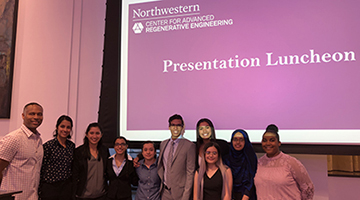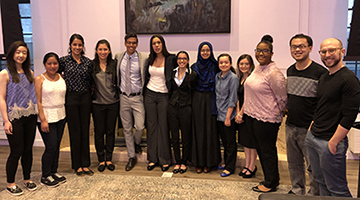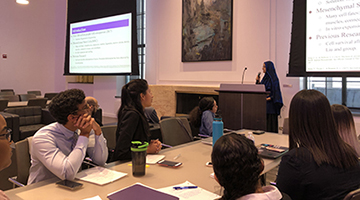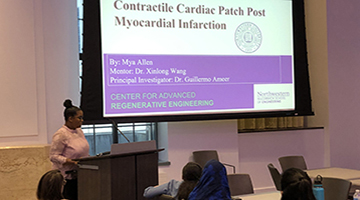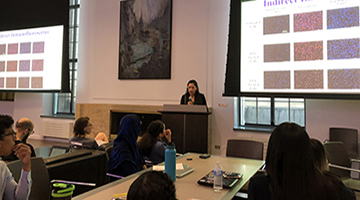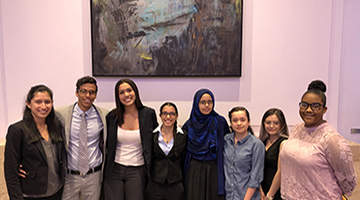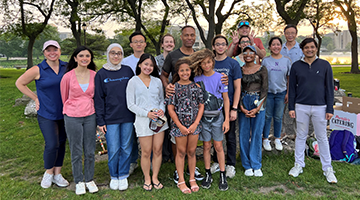Research Experience and Mentoring (REM) Summer Research Program:
The Research Experience and Mentoring (REM) Program at CARE offers six young researchers the opportunity to join an ongoing regenerative engineering research project. Over an eight week period this summer (program dates for 2024 are June 17th - August 9th), research participants will gain practical laboratory experience working on the EFRI project alongside Professor Guillermo Ameer and his team, mastering new skills related to cellular reprogramming alongside a larger array of mentorship and professional development opportunities. Stipends are provided to all research participants, and accommodations are available for applicants at least eighteen years of age from outside the Evanston area. Participation is open to students in high school, two-year, and four-year degree programs. Please note that NSF guidelines require all participants to be United States citizens, nationals, or permanent residents.
Applying to the REM Program
CARE is now accepting applications for the 2024 REM Summer Program! Applications will be accepted until March 22nd, 2024, with decision announcements expected by mid-April. Required materials include a resume, unofficial transcript, a short summary of an applicant's research goals and how they relate to the REM program, and one or more letters of recommendation. If you have any questions about the REM program or application process, please do not hesitate to contact Program Coordinator Barbara Kassner.
Click here to apply for the 2024 REM Summer Program
Click here to upload a letter of recommendation for an REM applicant
The NSF-EFRI Project
The vision of the Epigenetic Cell Reprogramming In Situ (EFRI) project is to integrate nanoscale optical imaging, cell and molecular biology, physics, and advanced materials science to identify strategies that regulate chromatin supranucleosomal structure to enhance the adaptive potential of eukaryotic cells and help induce cellular stemness, with the ultimate goal of facilitating tissue regeneration and function. The overall goal of this EFRI project in support of this vision is to develop new concepts and tools for enhancing cellular plasticity by examining the role of chromatin structure as a regulator of non-replicative cell adaptability through the exploration of the transcriptional landscape.
EFRI seeks to develop a means of protecting and regenerating ischemic tissue by inducing a temporary adjustment in chromatin folding and gene transcription processes in affected cells. This is achieved through the identification and harnessing of chromatin-activated plasticity enhancers (CAPEs) and chromatin-activated plasticity suppressors (CAPSs), a process that REM research participants contribute to in the following ways:
1) investigating the role of pharmacological CAPS and CAPES on the efficiency and yield of cell reprogramming into induced pluripotent stem cells (iPSCs)
2) investigating the role of pharmacological CAPS and CAPES on the differentiation of iPSCs into a target cell type
3) identifying factors that correlate between surface topographical features, nanoscale eimaging and molecular assays on chromatin compaction/structure
4) determine whether these agents can confer protective effects to cells or tissues exposed to stresses such as ischemia. RPs will be expected to master several skills and techniques, including cell culture, designing and 3D printing surface features, assessment of cell viability, assessment of cell differentiation, assessment of cell function, microscopy, histology, and immunohistochemistry or immunofluorescence.
The EFRI project and associated REM program are sponsored by the National Science Foundation.
